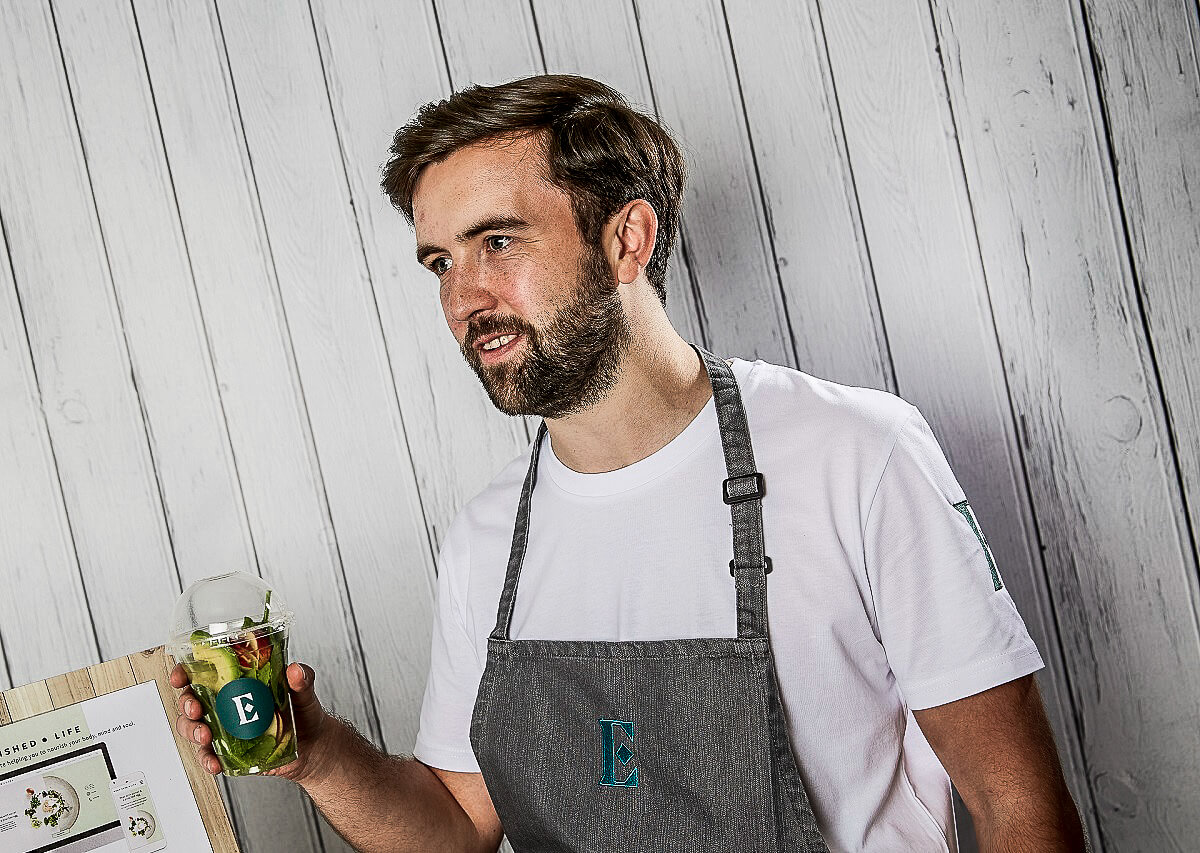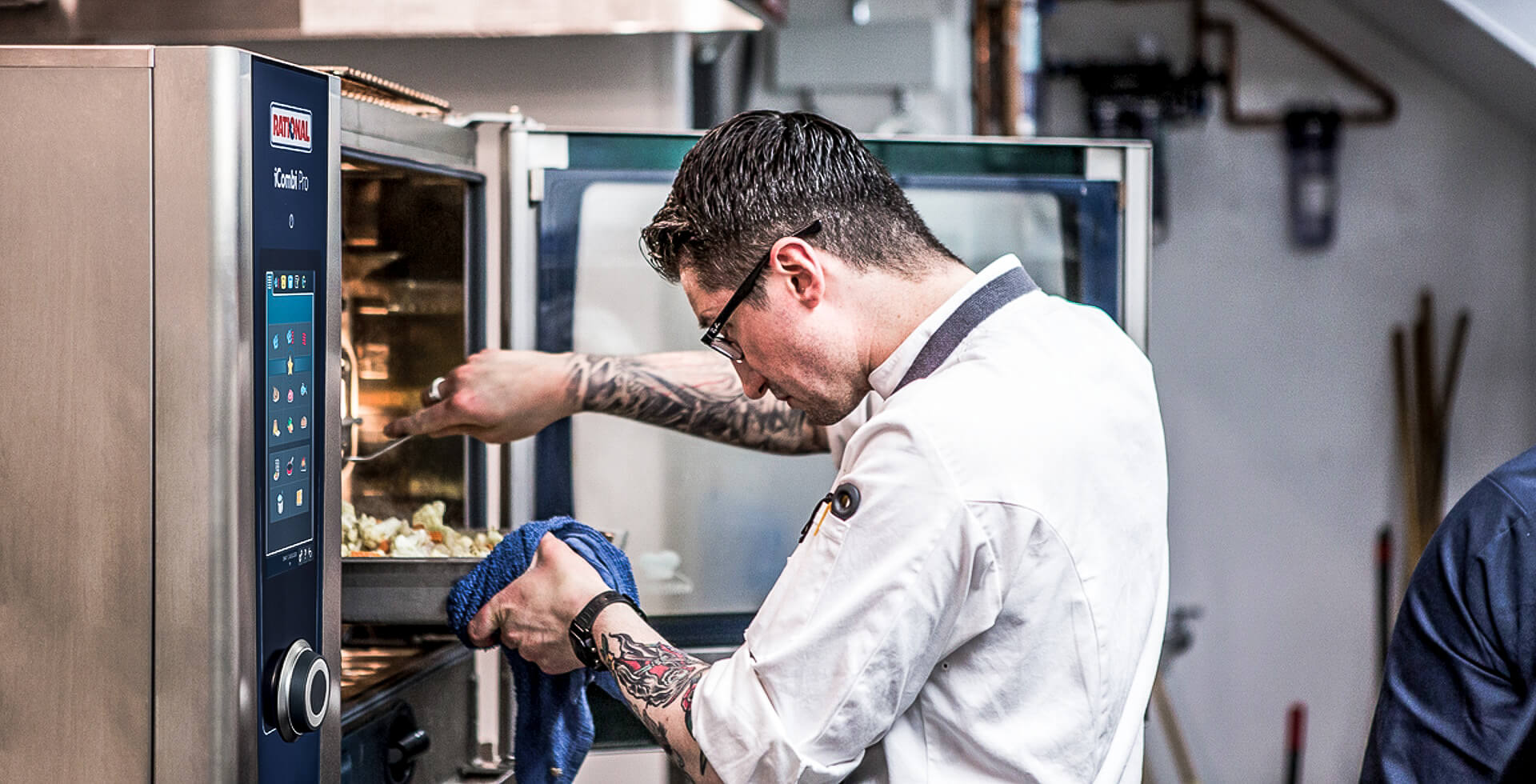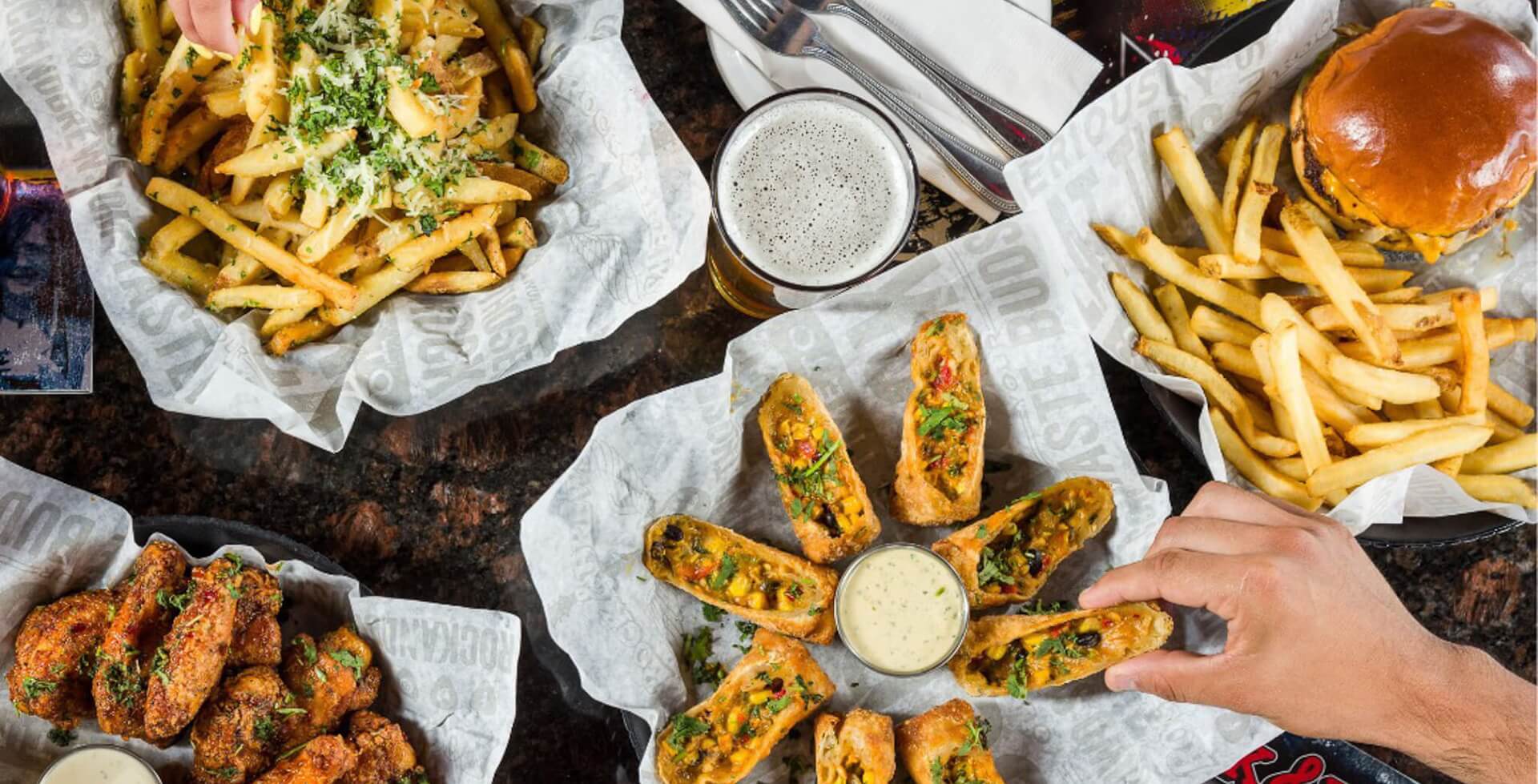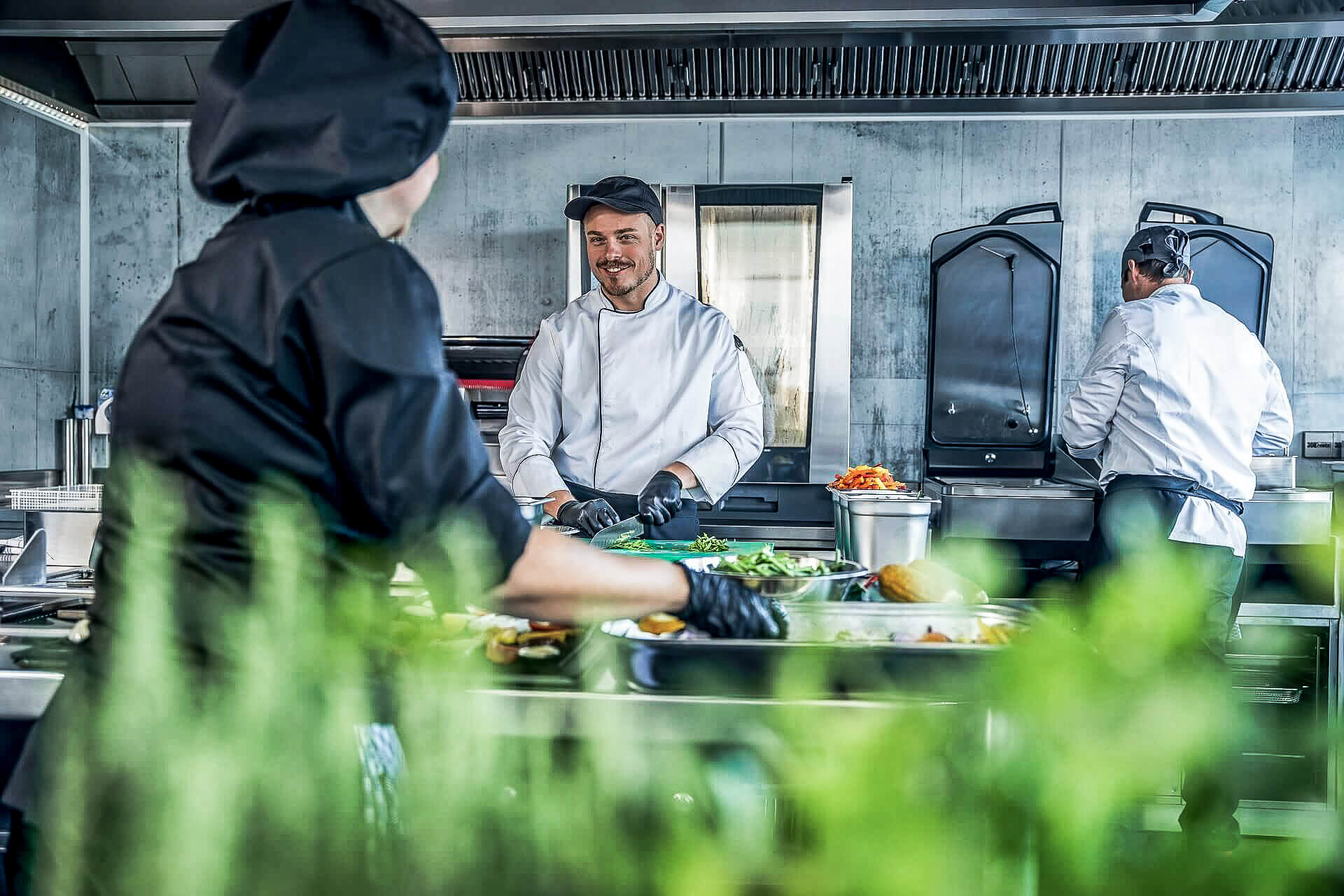Putting sustainability and health at the center of the services they offer, UK contract caterers Eurest – part of the Compass Group global network – and 14forty have created a new role for a head of nutrition and sustainability. Rees Bramwell who was named Healthy Eating Champion at this year’s Foodservice Cateys Awards, also drives the company’s food waste reduction strategy by combining robust monitoring tools with developing kitchen culture.
“Rees sums up what Eurest and 14forty are about, because he is constantly thinking what more he can do in his role to help improve the lives of others,” says managing director Morag Freathy. “His work in the field of nutrition has been outstanding, nudging our client’s people into healthier choices and now he has also brought his passion for sustainability to the table.”

Image: Eurest
In his career, Bramwell who completed a degree in Human Nutrition at University of Worcester before working in different public health roles for National Health Service Trusts in the UK as well as for Aston Villa FC, has worked with a focus on providing food to every demographic, from primary school groups to adult and elderly patients at risk of chronic illness.
“I always wanted to get closer to hospitality, kitchens and food and I gained my nutritionist role with Eurest around five and a half years ago,” he explains.
The foodservice industry and in particular catering has the power to at least influence the mindset of people and encourage a healthy and sustainable nutrition – with the positive side-effect of doing something good for our planet, while ensuring that workforce/customers eat healthier.
This is how sustainability in catering is encouraged by foodservice provider and contract caterer Eurest:
1. Create a positive food culture with great experiences and focus on wellbeing
Bramwell says creating a positive food culture in our workplaces, ultimately aiming to build healthier, happier workforces is at the core of Eurest’s mission. “We do this through providing great experiences for the employees we serve, in a comfortable environment with food and drink offers that promote the wellbeing of both people and planet,” he says. “Our food philosophy has three pillars; Flavourful, Mindful and Planet Positive and this is at the heart of everything we do.”
It is common knowledge that the global food system is responsible for a third of all greenhouse gases and – as Bramwell points out – deforestation, biodiversity loss and damage to aquatic life. “The foodservice industry sits within that system and reaches almost every part of society, which is an opportunity to lead change through responsible supply chains, evidence-based education for customers and clients and a focus on less-resource intensive sustainable menus,” he says.

Image: AdobeStock | sonyakamoz
Within Eurest there is a firm focus on sustainability and nutrition and Bramwell says the two are intrinsically linked. “You can’t fix one without the other and the need to re-balance is urgent,” he says explaining that, reducing each of them to their simplest form the same food groups are beneficial to human and planet health. “Encouraging the consumption of more fruit, vegetables and wholegrains is a start, then switching from red and processed meat to plant-based proteins like beans and pulses is one of the most impactful steps we can make. Focusing on these positive groups generally makes avoiding the less-positive groups easier,” he says.
2. Promote nutrition and sustainability, together
There’s a straightforward way within Eurest to promote nutrition and sustainability, together as well as individually. First, says Bramwell, the team lays the foundations for positive offers by for example increasing the availability of healthier and more sustainable meals or add more vegetables or legumes to existing recipes.
The next step is a branding exercise – position them as aspirational, delicious meals rather than restrictive to encourage customers by placing them at the top of menus and describe the flavors and provenance rather than “healthy” or “vegan”. The final step is to engage customers, offering free samples of new dishes, host pop-ups and market them prominently.
Sieh dir diesen Beitrag auf Instagram an
Among the sustainability initiatives the company runs he is particularly proud of the food waste campaign. This starts with prevention through chef training on effective ordering, planning and production. “We also launched our ‘Plenty’ recipe range, which champions underutilized ingredients such as coffee grounds and vegetable peelings which our chefs use,” explains Bramwell. “We hope this raises awareness of valuing every part of produce and being resourceful to make each part stretch further.”
3. Redistribute surplus food
Eurest works with organizations such as Olio and Too Good To Go to redistribute any surpluses, a trend that is definitely spreading in the foodservice sector. “I’m pleased to see this is pretty common practice across the industry now,” says Bramwell.
Eurest also works with University of Oxford on eco-labeled menus across the business and launching a recipe range called Plantilicious.
Sieh dir diesen Beitrag auf Instagram an
4. Net Zero in foodservice is achievable
Eurest has a stated ambition to be net zero by 2030; just seven years away, but what is the plan to get there. “We have a clear climate promise roadmap with targets in line with the Science Based Targets initiative and milestones such as halving food waste, 40% animal protein switch as well as regenerative agriculture and packaging targets,” explains Bramwell. “We have worked hard to take a data-driven approach and partnered with credible experts like University of Oxford to guide us on the journey in the most responsible way.”
He adds that while many lessons have been learnt already, the company culture has embraced this goal and will be crucial to delivering results over the next few years.
Behind the aims to provide a service sustainably and with a high standard of nutrition, at the heart of Eurest remains the commitment to quality. “Health and sustainability really are at the heart of us delivering purposeful offers that benefit workplaces up and down the country rather than food and drink that just fills a gap,” concludes Bramwell.
“However, this doesn’t work without it tasting and looking great – our job is to make healthier and more sustainable food an easier choice for everyone, and quality has to be a priority to achieve that.”











